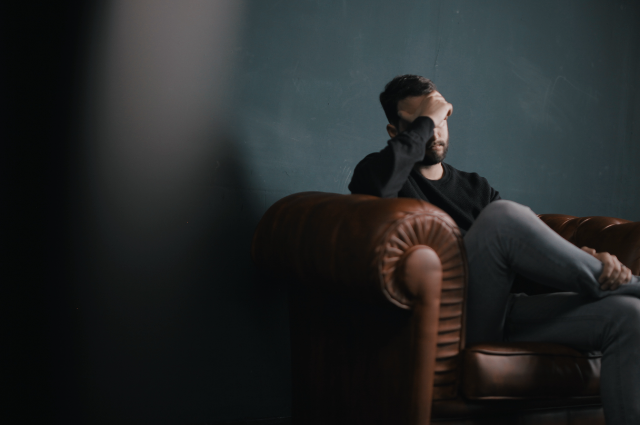
Photo by Nik Shuliahin on Unsplash
Chapter 2: Memories
In the cold, dimly lit confines of his jail cell, John's mind was a tumultuous sea of memories and emotions. He couldn't escape the haunting images of his daughter, Lily, as they danced through his thoughts. Her smile, radiant and pure, the sound of her laughter that could light up even the darkest corners of his world, and those sparkling, hopeful eyes that held the promise of a bright future. How could he have possibly hurt her? The very thought was unbearable. His love for her was the cornerstone of his existence, an unbreakable bond that defined his purpose.
The days leading up to the trial were a tormenting blur. John's lawyer, Andrew, worked tirelessly to build a defense, but the evidence against him seemed insurmountable. The prosecution's narrative was a chilling one, painting John as a neglectful father, blinded by his own desires and frustrations. They claimed that John had lost control, succumbing to a fit of rage that led him to commit the unthinkable act of taking his own daughter's life.
The prosecution's case relied heavily on the testimonies of witnesses who had reported hearing heated arguments coming from John's house on the night of Lily's death. These accounts were like shards of glass, tearing through John's sense of reality. He wracked his brain, trying to remember what had transpired that night. He could recall moments of tension, perhaps typical teenage rebellion, but nothing that could have escalated to such a horrifying outcome.
The media circus that had descended upon John's life was relentless, each news outlet vying for the juiciest scoop. They portrayed John as a monster, his face plastered across television screens and tabloids with headlines that screamed sensationalism. Reporters and news crews swarmed outside the courthouse, their cameras flashing incessantly, as if capturing his every move would uncover some dark truth. It felt as though the whole world had already passed judgment on him, and he was left to bear the weight of their scrutiny.
Inside his cell, John grappled with a suffocating sense of isolation. He was cut off from the world, from the routines of daily life that had once given him solace. The walls of his cell seemed to close in on him, the cold metal bars a stark reminder of his predicament. Sleep became elusive, his nights haunted by nightmares that blended the past with the present, tormenting him with visions of Lily's accusing eyes.
Visits from his lawyer were John's only lifeline to the outside world. Andrew, a tenacious defender, tirelessly sought any angle to challenge the prosecution's case. They pored over witness statements, dissected forensic reports, and scrutinized every piece of evidence. John clung to the hope that justice would prevail, that the truth would ultimately vindicate him.
But as the trial drew nearer, the weight of the evidence bore down upon them. The prosecution presented a damning narrative of John's life, one that cast him as a man drowning in his own desires and frustrations. They pointed to text messages between John and Lily that painted a picture of a strained relationship, one marred by misunderstandings and conflict. It was a narrative that John couldn't recognize, a distortion of his reality.
Andrew's defense strategy hinged on dismantling the prosecution's narrative piece by piece. He questioned the credibility of the witnesses, unearthing inconsistencies in their statements. He argued that the forensic evidence could have been contaminated, that there were plausible explanations for Lily's blood being found in various places in the house. Every day, he and John walked into the courtroom, their resolve unwavering, even as the world outside continued to pass judgment.
The trial itself was a harrowing experience. John took the stand, his voice quivering but his determination unyielding. He recounted the love he had for Lily, the dreams they had shared, and the anguish of losing her. He maintained his innocence, declaring with unwavering conviction that he would never harm his own child. But as he faced the jury, their eyes filled with doubt, he couldn't help but feel the crushing weight of suspicion bearing down upon him.
The verdict, when it came, was like a sledgehammer to John's already battered spirit. He was found guilty of Lily's murder, a verdict that left him in stunned disbelief. The courtroom erupted in a cacophony of gasps and murmurs, but for John, the world seemed to blur into an incomprehensible haze. He was led away in shackles, his heart heavy with the injustice that had befallen him.
In the confines of his prison cell, John clung to the memories of Lily, the warmth of her embrace, the sound of her laughter, and the dreams they had nurtured together. He refused to let go of the belief that the truth would eventually surface, that the real perpetrator would be brought to justice.
As the days turned into weeks and then months, John's life became a relentless cycle of solitude and despair. He missed his son, Max, who had been placed in the care of relatives, and he longed for the day when he could hold him in his arms again. He poured over every detail of the case, searching for any clue that might exonerate him, even as his hope dwindled.
The memories of Lily became his lifeline, the flickering candle in the darkness of his existence. He would close his eyes and remember her smile, her laughter, and the way she would always brighten his day. It was in these memories that he found solace, in the belief that he would one day prove his innocence and honor Lily's memory by bringing her true killer to justice
To be continued,...
